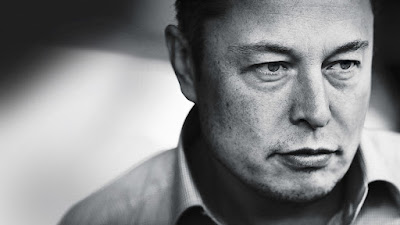Wednesday, September 21, 2016
Musk knows Cash is King
Part 3... In February 1999 Compaq Computer Corporation bought Zip2 for $307 million in cash, which was one of the largest cash deals in the Internet business sector at the time. Out of that amount, Musk was paid $22 million for his 7 percent share, which made him a millionaire at twenty-eight. In 1999, he used $10 million of it to start another company, which he called X.com. This was an online bank with grand plans to become a full-range provider of financial services to consumers. The company's one major innovation was figuring out how to securely transfer money using a recipient's e-mail address.
Musk's proven track record from Zip2 helped it gain serious attention and generous investors right away. Two important executives signed on with him: investment banker John Story and Bill Harris, the former chief executive officer of Intuit Corporation, the maker of the best-selling Quicken accounting software as well as TurboTax, a tax-preparation program. Harris was appointed president and chief executive officer of X.com, with Musk serving as company chair. The company received a generous infusion of $25 million in start-up capital from Sequoia Capital, a leading venture-capital firm in California.
X.com went online in December 1999 with a bold offer for new customers: those who opened an online checking account with X.com received a $20 cash card that they could use at an automatic-teller machine (ATM). If they referred a friend, they received a $10 card for each new member who signed up.
Within two months, X.com had one hundred thousand customers, which was close to the number reached by its major competitor, Etrade Telebank. But consumer skepticism about the security of online banking was X.com's biggest obstacle to success, and there was a setback when Musk and the other executives had to admit that computer hackers had been able to perform some illegal transfers from traditional bank accounts into X.com accounts. They immediately started a new policy that required customers to submit a canceled check in order to withdraw money, but there were tensions in the office about the future of the company.
In March 2000, X.com bought a company called Confinity, which had started an Internet money-transfer presence called PayPal. PayPal was originally set up to let users of handheld personal digital assistants, or PDAs, transfer money. It had only been in business a few months when X.com acquired it, and Musk believed that its online-transfer technology, which was known as "P2P" for "person-to-person," had a promising future. He and Harris did not agree, and Harris resigned from X.com in May 2000.
Five months later, Musk announced that X.com would abandon its original online bank and instead concentrate on turning itself into the leading global payment transfer provider. The X.com name was dropped in favor of PayPal.
PayPal grew enormously through 2001, thanks in part to its presence on eBay, the online auction Web site where person-to-person sales were happening in the hundreds of thousands. When PayPal became a publicly traded company with an initial public offering (IPO) of stock in February 2002, it had an impressive debut on the first day of Wall Street trading. Later that year, eBay bought the company outright for $1.5 billion. At the time, Musk was PayPal's largest shareholder, holding an 11.5 percent stake, and he netted $165 million in valuable eBay stock from the deal.
By then Musk had already moved on to his next venture. In June 2002 he founded SpaceX, or Space Exploration Technologies. He had long been fascinated by the possibility of life on Mars and was a member of the Mars Society, a nonprofit organization that encourages the exploration of the red planet. Filmmaker James Cameron (1954–) is one of several notable Mars Society members.
Musk wanted to create a "Mars Oasis," sending an experimental greenhouse to the planet, which in favorable alignment of the planets is about 35 million miles distant from Earth. His oasis would contain a nutrient gel from which specific Mars-environment-friendly plant life could grow. His plan had a cost of $20 million. But then he learned that to send something into space with the standard delivery method, a Delta rocket made by the Boeing Corporation, would add another $50 million to the cost.
Musk even tried to buy a rocket from Russia, but realized that dealing with the somewhat suspect international traders who dealt in such underground, or illegal, items was just too risky.
Subscribe to:
Post Comments (Atom)















No comments:
Post a Comment